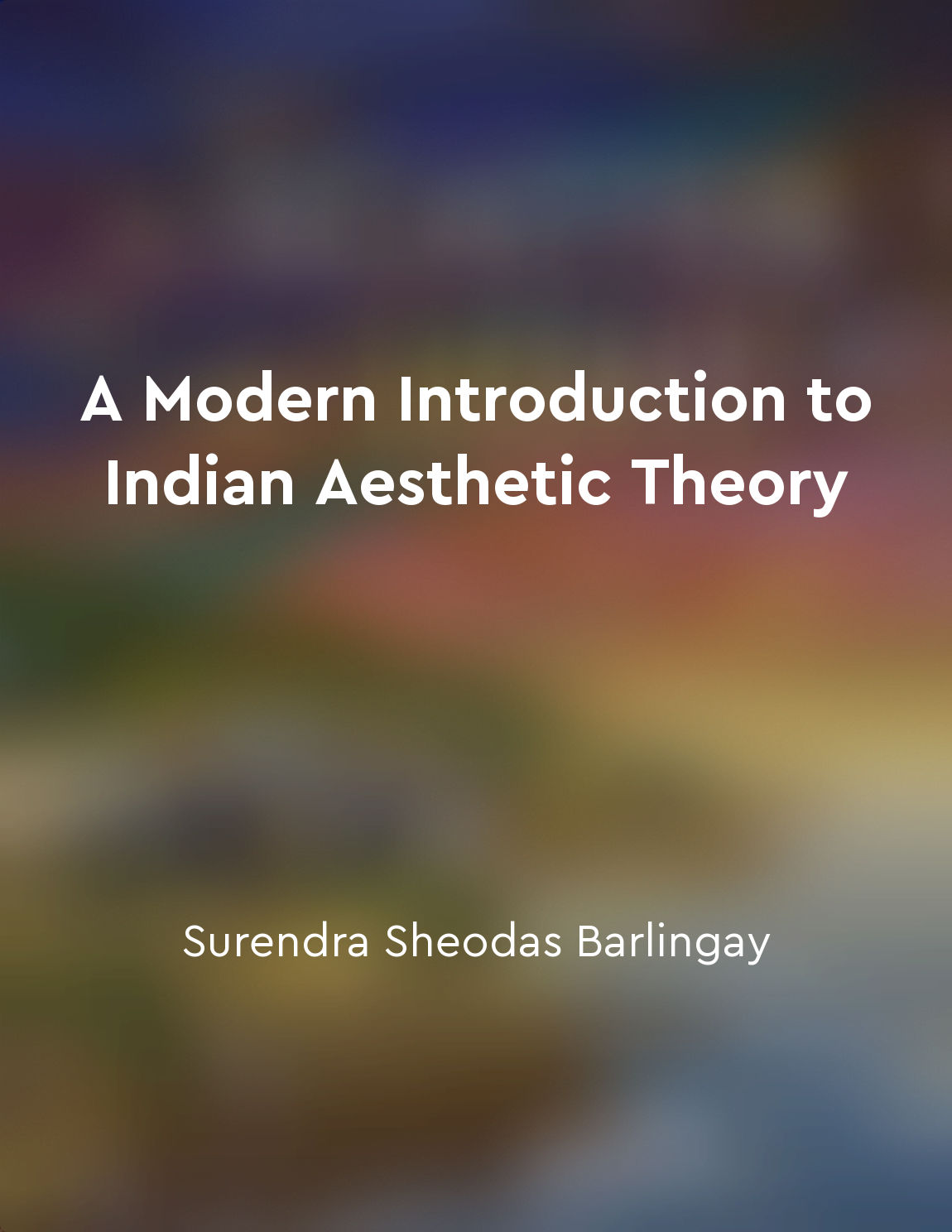Rasa as a universal language of emotions from "summary" of A Modern Introduction to Indian Aesthetic Theory by Surendra Sheodas Barlingay
Rasa, as a universal language of emotions, plays a crucial role in Indian aesthetic theory. This concept suggests that emotions are at the core of any artistic experience and can be universally understood and appreciated by individuals, regardless of their cultural background or personal experiences. It is believed that certain emotions, or Rasas, such as love, anger, fear, and joy, are fundamental to human existence and can be effectively communicated through various art forms. In Indian aesthetic theory, the experience of Rasa is considered to be the ultimate goal of any artistic creation. Artists strive to evoke specific emotions in their audience, aiming to create a shared emotional experience that transcends individual differences. Through the use of various artistic elements such as music, dance, drama, and literature, artists can effectively communicate the essence of a particular emotion and create a profound impact on their audience. The concept of Rasa is rooted in the belief that e...Similar Posts
Adapt your communication to match the sensory preferences of others
When it comes to communication, it is essential to consider the sensory preferences of others. People have different ways of pr...
Honesty paves the way for trust to flourish
In relationships, honesty is like the foundation on which trust is built. When you are honest with someone, you show them that ...
Emotional appeal is crucial for successful products
When designing products, it is essential to consider the emotional appeal they evoke in users. Emotions play a significant role...
Stay committed to your creative practice
To be creative means to be committed. It means to show up day after day, year after year, and do the work. It means to push thr...

The evolution of Indian Aesthetic Theory over time
Indian Aesthetic Theory has undergone significant evolution over time, reflecting the changing philosophical and cultural lands...
Art as a form of protest
Art has been used as a powerful tool for protest throughout history. Artists have often used their creativity to express dissen...
Beauty is a symbol of moral harmony
In considering the concept of beauty as a symbol of moral harmony, we must first acknowledge the fundamental connection between...
Wellbeing can be enhanced through art
Art has the power to evoke emotions, spark creativity, and stimulate our minds in ways that words often cannot. When we engage ...
Aesthetic judgement is grounded in freedom of thought
In matters of aesthetic judgement, we find ourselves in a realm where reason alone cannot dictate what is beautiful or sublime....
